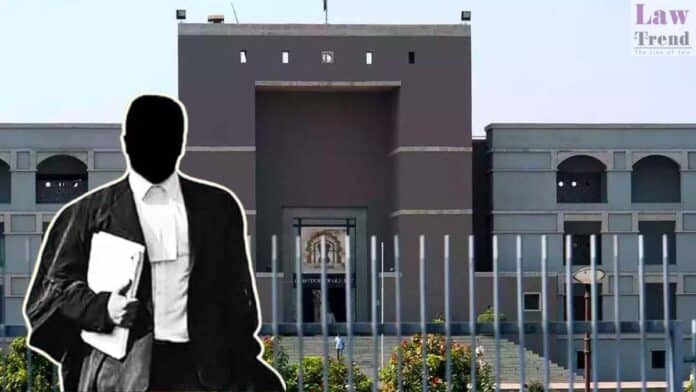The Income Tax department on Monday told the Gujarat High Court that the searches conducted at an advocate’s premises were not directed against his professional capacity but to probe tax evasion, and claimed that it has come up with some incriminating evidence against him and the target groups he represented.
The division bench of Justices Bhargav Karia and Niral Mehta was hearing a petition moved by 45-year-old Maulik Sheth, a practising lawyer at the high court, who challenged the I-T department’s raids at his residence and office as a breach of his constitutional right to privacy and violation of attorney-client privilege.
Arguing for the I-T department, Additional Solicitor General (Supreme Court) N Venkataraman informed the court that section 126 of the Evidence Act about attorney-client privilege does not apply to this particular case because Sheth is allegedly a collusive agent and a party to the crime, hence losing his capacity as a counsel in this case.
He said that the department initially targeted three groups but in the process, discovered a pattern of tax evasion, which was not just confined to them but also extended to several others.
While the investigation is at a nascent stage and more documents may be seized as it progresses, from what has been obtained so far, “incriminating evidence” has been found against the petitioner, the three target groups and similar deals handled by him in other cases, the ASG said.
“We have not targeted a particular professional or his professional capacity. The couple (petitioner and his wife) has moved away from its professional capacity and is engaged in something else, which is what we have targeted. Your lordship should isolate professional capacity and action done,” he said in his submission.
“Any presumption that this is targeted against a profession, and through him the professional community, is a misconception. We flatly deny the assumption. That is not the endeavour of this investigation,” he told the court.
“Just because he happens to be a professional, he can’t shield himself by drawing his entire fraternity. We cannot allow that,” the ASG said.
Despite being a lawyer, the petitioner was party to the crime and is not protected under the Evidence Act, he said.
“A client’s communication which is not illegal alone is protected. You colluded with the client, how is section 126 (of the Evidence Act) protection? …He is a collusive agent and a party, so he loses his capacity as a counsel in this case,” Venkataraman said.
The court said it was perturbed by the manner in which the search was conducted.
Justice Karia said that the I-T department sleuths collected files of the lawyer’s other clients and directed the department to make a statement that it will not use the data collected except for persons against whom the search is targeted.
The department was directed to file an affidavit explaining to the court whether the search operation carried out for four days on the petitioner was justified and whether the privacy of a professional person was protected and kept the matter for further hearing on Wednesday.
Also Read
In the last hearing, the court issued notices to I-T officers in their individual capacity after the petitioner’s lawyer said that his client was not allowed to attend the high court in a clear violation of his constitutional rights.
Sheth, in his petition, said that I-T officials carried out searches at his residence for three days from November 3, and made copies of digital data from the iPhone of his wife, minor son, and daughter.
The petitioner and his family were not allowed to move freely until the end of the search on November 6, he claimed, adding that he was even prohibited from representing his clients in court during this period.
The I-T officials not only took away confidential documents relating to his clients who were under the I-T scanner but also other clients, the petition stated.




